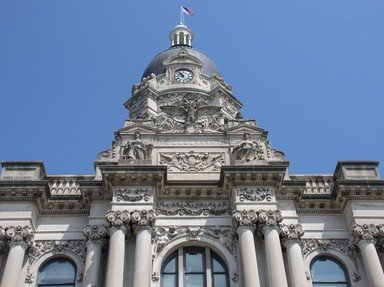Quiz Answer Key and Fun Facts
1. One of the strangest episodes in United States history occurred in 1692 in Salem, Massachusetts, when the infamous Salem witch trials took place. How many convicted witches were hanged in Salem before the colony finally came to its senses?
2. The trial of John Peter Zenger in 1735 was significant for the development of what legal concept?
3. One of the first claims of executive privilege by a President in response to a subpoena occurred in connection with an 1807 trial. Who was the defendant in this famous treason case?
4. After the assassination of President Lincoln, the U.S. tried eight persons for allegedly participating in the conspiracy to assassinate the President. How many of these eight were executed?
5. The Haymarket riot of May 4, 1886, was a key event in the development of the labor movement in the USA. Of the eight defendants tried for the death of a policeman during the riot, how many were eventually executed by the State?
6. The trial of Lizzie Borden in 1893 for killing her parents with an axe was one of the most infamous cases in U.S. history. Where did these murders occur?
7. During World War I Eugene Debs, the five-time Socialist candidate for President, was convicted of violating the Sedition and Espionage Acts for speaking out against the war. He was given a ten-year sentence and sent to prison in April 1919. What ended his prison term?
8. The Scopes monkey trial in 1927 was certainly one of the most famous in American history, its fame enhanced by the great Spencer Tracy film "Inherit the Wind" (1960). Defendant Scopes was convicted of teaching evolution, but the conviction was reversed on appeal. On what basis did the Tennessee Supreme Court reverse the trial result?
9. One of the most highly-publicized crimes of the 20th century was the Lindbergh baby kidnapping in 1932. About how long after the kidnapping took place was defendant Bruno Hauptmann arrested?
10. The anti-war protests at the 1968 Democratic National Convention in Chicago led to a famous trial in which eight protesters were charged with conspiracy. The "Chicago Eight" became the "Chicago Seven" when one of the defendants was removed from the trial due to his frequent outbursts at the judge. Who was this eighth defendant?
Source: Author
chessart
This quiz was reviewed by FunTrivia editor
gtho4 before going online.
Any errors found in FunTrivia content are routinely corrected through our feedback system.
